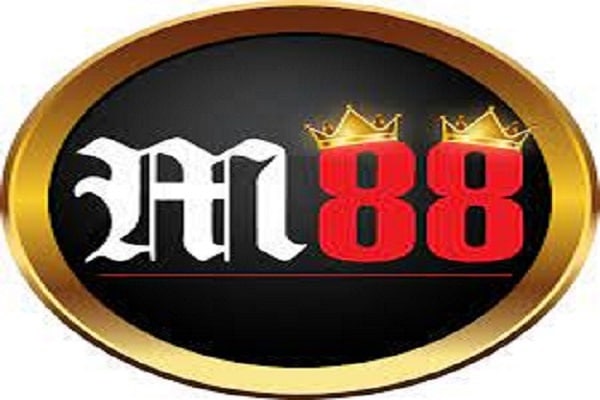Hiện tại, với sự phát triển nhanh chóng của thị trường cá cược, có hàng trăm sòng bạc mới xuất hiện, khiến cho nhiều người yêu thích trò chơi lo lắng khi tham gia. Việc tìm kiếm những đường dẫn đến những sòng bạc đáng tin cậy đòi hỏi nhiều thời gian và cống hiến không nhỏ. Dưới đây, chúng tôi đã tổng hợp danh sách của 10 nhà cái Casino Online uy tín nhất hiện nay, giúp các bạn có thể tham khảo và lựa chọn dựa trên đánh giá tổng quan từ cộng đồng người chơi.
Casino Online là các trò đánh bài trực tuyến, thường xuất hiện ở các sòng bài trước đây. Chúng thường có lối chơi đơn giản, tỷ lệ thưởng cao và mang đến trải nghiệm độc đáo. Các bộ môn này thường dùng bộ bài Tây 52 lá hoặc bộ đặc biệt, mỗi game có luật riêng để giữ tính thú vị.

Hãy tham gia chúng tôi trong việc khám phá các trang web được đánh giá cao trong lĩnh vực giải trí này.
Cổng game này hoạt động dưới sự cấp phép của PAGCOR ở Philippines và được hậu thuẫn mạnh mẽ từ các tập đoàn hàng đầu trong ngành. Điều này giúp K9WIN xây dựng danh tiếng nhanh chóng.

Danh mục các trò chơi Casino trực tuyến tại nhà cái FB88 rất đa dạng và thích hợp cho người chơi mới.

M88 là một tập đoàn hàng đầu trong lĩnh vực cung cấp dịch vụ cá cược trực tuyến và nổi bật với sự đa dạng của các trò chơi Casino trực tuyến từ các thương hiệu hàng đầu.

Nhà cái này cung cấp một trang web và ứng dụng di động chất lượng, với tỷ lệ trả thưởng cao hơn so với các trang web cờ bạc khác.

Nhà cái này chú trọng vào thị trường Việt Nam và nhanh chóng trở thành một trong những sự lựa chọn phổ biến.

Trang web cờ bạc trực tuyến New88 cung cấp đầy đủ các sản phẩm cá độ như Roulette, Baccarat, Blackjack và Slot game, với tỷ lệ trả thưởng cao giúp bạn có cơ hội phát tài một cách nhanh chóng.

Họ đang cung cấp tổng cộng 7 sản phẩm cá cược, bao gồm Thể thao, Sòng bài, E-Sport, Nổ hũ, 3D Games, Bắn cá, và Xổ số.

FUN88 là một sòng bạc nổi tiếng không chỉ tại Việt Nam mà trên toàn cầu. Họ cung cấp hơn 100 trò chơi Casino đa dạng, bao gồm cả các trò chơi cổ điển và hiện đại.

Là một trang Casino Online đáng tin cậy nhất 2023, được quản lý bởi M.A.N Entertainment Group, đã tồn tại trong một thời gian dài và thu hút hơn 10 triệu thành viên.

12BET là một sòng bạc trực tuyến đáng tin cậy, hoạt động đã lâu và có một cộng đồng thành viên đông đảo. Họ cung cấp một loạt các trò chơi đánh bạc, từ cổ điển đến những trò chơi mới nhất.

Các tiêu chí để đánh giá tính uy tín của một trang Casino bao gồm:
Dưới đây là những câu hỏi thường gặp nhất về thế giới của sòng bạc trực tuyến.
Casino trực tuyến uy tín thay đổi theo thời gian và vị trí của bạn. Hãy xem xét các trang web Casino có giấy phép, đánh giá từ người chơi và các yếu tố khác để chọn Casino phù hợp trong danh sách trên.
Chơi Casino Online phụ thuộc vào sở thích và tài chính cá nhân. Hãy cân nhắc kỹ, đặt giới hạn và chơi có trách nhiệm nếu bạn muốn tham gia.
Công bằng ở Casino trực tuyến liên quan đến minh bạch và công nghệ kiểm soát công bằng. Casino uy tín thường dùng kiểm tra ngẫu nhiên để đảm bảo tính công bằng trong trò chơi.
Luật về Casino trực tuyến khác nhau tại mỗi quốc gia, nên kiểm tra luật địa phương để tránh rủi ro pháp lý.
Trên đây, chúng tôi đã gửi đến bạn danh sách top 10 trang web Casino Online uy tín nhất hiện nay, hy vọng thông tin này sẽ giúp bạn lựa chọn sân chơi tốt và đạt được nhiều chiến thắng.